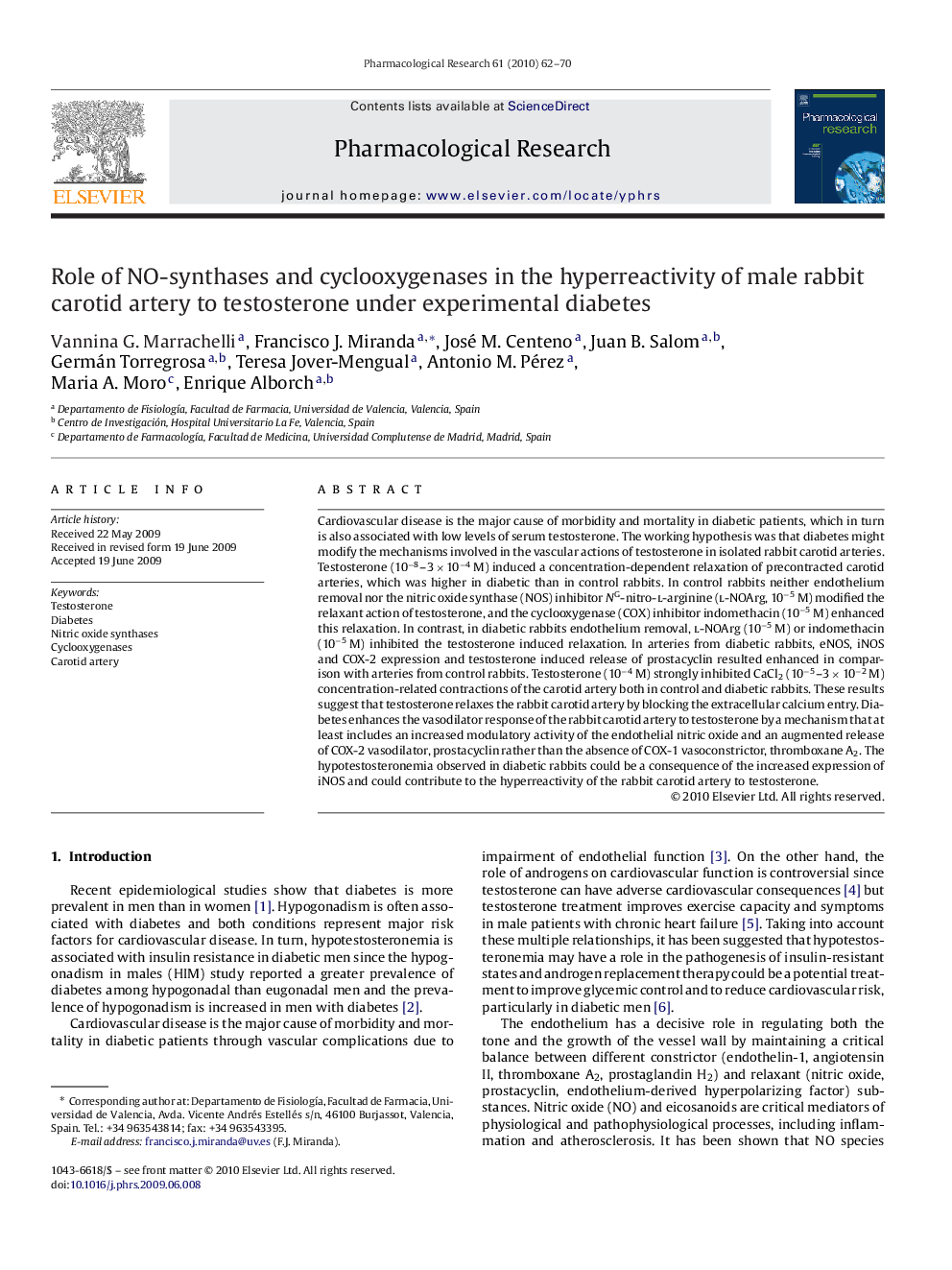| Article ID | Journal | Published Year | Pages | File Type |
|---|---|---|---|---|
| 2561756 | Pharmacological Research | 2010 | 9 Pages |
Cardiovascular disease is the major cause of morbidity and mortality in diabetic patients, which in turn is also associated with low levels of serum testosterone. The working hypothesis was that diabetes might modify the mechanisms involved in the vascular actions of testosterone in isolated rabbit carotid arteries. Testosterone (10−8–3 × 10−4 M) induced a concentration-dependent relaxation of precontracted carotid arteries, which was higher in diabetic than in control rabbits. In control rabbits neither endothelium removal nor the nitric oxide synthase (NOS) inhibitor NG-nitro-l-arginine (l-NOArg, 10−5 M) modified the relaxant action of testosterone, and the cyclooxygenase (COX) inhibitor indomethacin (10−5 M) enhanced this relaxation. In contrast, in diabetic rabbits endothelium removal, l-NOArg (10−5 M) or indomethacin (10−5 M) inhibited the testosterone induced relaxation. In arteries from diabetic rabbits, eNOS, iNOS and COX-2 expression and testosterone induced release of prostacyclin resulted enhanced in comparison with arteries from control rabbits. Testosterone (10−4 M) strongly inhibited CaCl2 (10−5–3 × 10−2 M) concentration-related contractions of the carotid artery both in control and diabetic rabbits. These results suggest that testosterone relaxes the rabbit carotid artery by blocking the extracellular calcium entry. Diabetes enhances the vasodilator response of the rabbit carotid artery to testosterone by a mechanism that at least includes an increased modulatory activity of the endothelial nitric oxide and an augmented release of COX-2 vasodilator, prostacyclin rather than the absence of COX-1 vasoconstrictor, thromboxane A2. The hypotestosteronemia observed in diabetic rabbits could be a consequence of the increased expression of iNOS and could contribute to the hyperreactivity of the rabbit carotid artery to testosterone.
